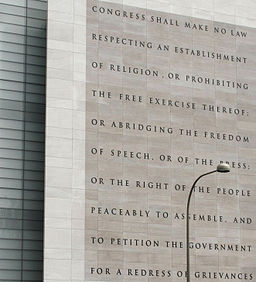
New York litigators are familiar with CPLR § 2104, which requires all stipulations, including stipulations of settlement, to be “in a writing subscribed” by a party or the party’s attorney. Thus, to ensure that the settlement of a dispute is binding, an attorney should obtain the settlement terms in writing and have them “subscribed” by the opposing party or that party’s attorney. Under New York law, however, this requirement does not necessarily require a physically signed formal settlement agreement. In the world of electronic communication, New York courts have generally expanded the scope of what constitutes a "writing subscribed by him or his attorney" pursuant to CPLR §2104 to include certain electronic communications, such as email.
For example, in Forcelli v. Gelco, 109 A.D.3d 244, 251 (2d Dept. 2013), the Court stated that "it would be unreasonable to conclude that email messages are incapable of conforming to the criteria of CPLR § 2104 simply because they cannot be physically signed in the traditional fashion.” As a result, the Court held that an email message containing the material terms of a settlement and the typed name of the sender (as opposed to an automatically generated signature line) constituted a subscribed writing within the meaning of CPLR §2104.
The writing and subscription requirement, however, does not apply if the parties’ dispute has not resulted in the filing of “an action.” If a dispute between parties has not yet proceeded to actual litigation, the traditional rules governing contract formation apply. A settlement agreement is enforceable where there is an offer, acceptance of the offer, consideration, mutual assent, and an intent to be bound. See 22 N.Y. Jur. 2d, Contracts § 9; Kowalchuk v. Stroup, 61 A.D.3d 118, 121 (1st Dep’t 2009). To determine whether there has been a meeting of the minds demonstrating mutual assent and intent to be bound, a court should examine the words and deeds that constitute objective signs in a given set of circumstances. See 22 N.Y. Jur. 2d, Contracts § 28; Kowalchuk, 61 A.D.3d at 121.
Significantly, provided there is objective evidence establishing that the parties agreed on the terms and intended to be bound, a settlement occurring before a lawsuit is filed need not be signed in order to be an enforceable agreement, whether oral or written. See, e.g., Mun. Consultants & Publishers, Inc. v. Town of Ramapo, 47 N.Y.2d 144, 148-49 (1979); Kowalchuk, 61 A.D.3d at 118. Once formed, a settlement agreement is binding and enforceable even when one party later refuses to execute a formal written agreement. Forcelli, 109 A.D.3d at 247-48 (finding binding e-mail agreement, where defendant sent e-mail stating in pertinent part “Per our phone conversation today, May 3, 2011, you accepted my offer of $230,000 to settle this case. . . . You also agreed to prepare the release . . . Please forward the release and dismissal for my review. Thanks Brenda Greene.”); Kowalchuk, 61 A.D.3d at 121-22, 124 (holding that settlement agreement was formed by initial e-mail communications between the parties’ counsel even though parties were subsequently negotiating formal settlement agreement).
In the event that a party does not want to be bound until a formal settlement agreement and release is executed, the party’s attorney should make it clear that the contract is not binding until a formal document is completed and executed. See, e.g., Kowalchuk, 61 A.D.3d at 123.
For example, in Forcelli v. Gelco, 109 A.D.3d 244, 251 (2d Dept. 2013), the Court stated that "it would be unreasonable to conclude that email messages are incapable of conforming to the criteria of CPLR § 2104 simply because they cannot be physically signed in the traditional fashion.” As a result, the Court held that an email message containing the material terms of a settlement and the typed name of the sender (as opposed to an automatically generated signature line) constituted a subscribed writing within the meaning of CPLR §2104.
The writing and subscription requirement, however, does not apply if the parties’ dispute has not resulted in the filing of “an action.” If a dispute between parties has not yet proceeded to actual litigation, the traditional rules governing contract formation apply. A settlement agreement is enforceable where there is an offer, acceptance of the offer, consideration, mutual assent, and an intent to be bound. See 22 N.Y. Jur. 2d, Contracts § 9; Kowalchuk v. Stroup, 61 A.D.3d 118, 121 (1st Dep’t 2009). To determine whether there has been a meeting of the minds demonstrating mutual assent and intent to be bound, a court should examine the words and deeds that constitute objective signs in a given set of circumstances. See 22 N.Y. Jur. 2d, Contracts § 28; Kowalchuk, 61 A.D.3d at 121.
Significantly, provided there is objective evidence establishing that the parties agreed on the terms and intended to be bound, a settlement occurring before a lawsuit is filed need not be signed in order to be an enforceable agreement, whether oral or written. See, e.g., Mun. Consultants & Publishers, Inc. v. Town of Ramapo, 47 N.Y.2d 144, 148-49 (1979); Kowalchuk, 61 A.D.3d at 118. Once formed, a settlement agreement is binding and enforceable even when one party later refuses to execute a formal written agreement. Forcelli, 109 A.D.3d at 247-48 (finding binding e-mail agreement, where defendant sent e-mail stating in pertinent part “Per our phone conversation today, May 3, 2011, you accepted my offer of $230,000 to settle this case. . . . You also agreed to prepare the release . . . Please forward the release and dismissal for my review. Thanks Brenda Greene.”); Kowalchuk, 61 A.D.3d at 121-22, 124 (holding that settlement agreement was formed by initial e-mail communications between the parties’ counsel even though parties were subsequently negotiating formal settlement agreement).
In the event that a party does not want to be bound until a formal settlement agreement and release is executed, the party’s attorney should make it clear that the contract is not binding until a formal document is completed and executed. See, e.g., Kowalchuk, 61 A.D.3d at 123.
Picture Copyright




